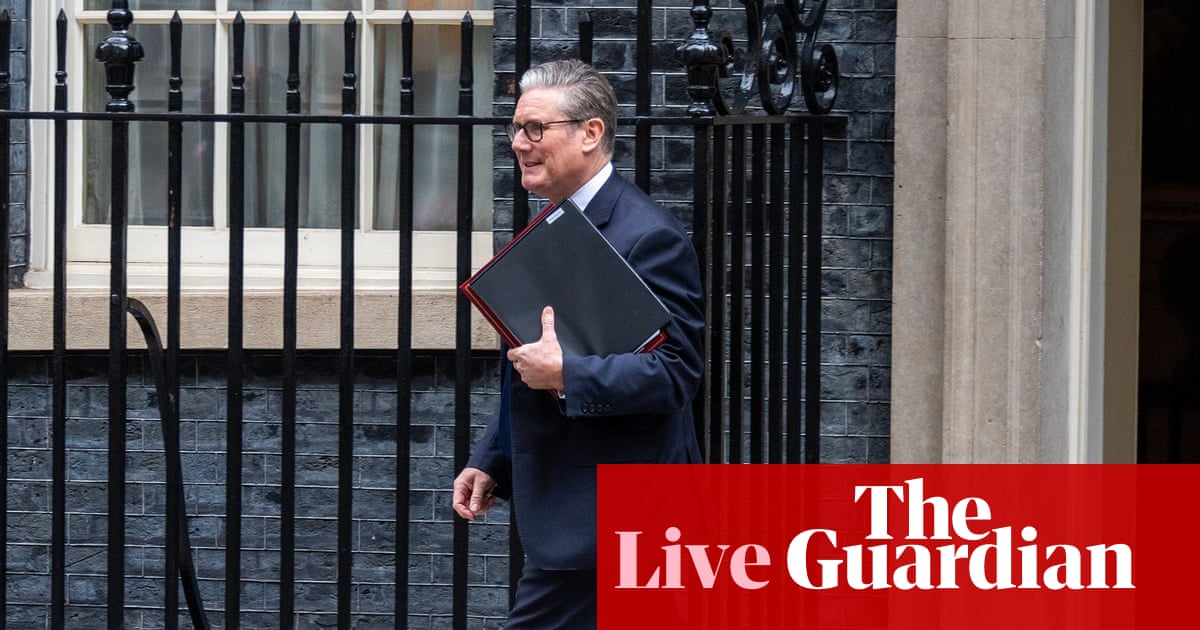French parliament set for no-confidence votes
Welcome to our Europe blog with a lively day expected in the French parliament with two no-confidence votes scheduled.
The prime minister, Sébastien Lecornu, and his government appear likely to survive, however, after he offered to suspend President Emmanuel Macron’s landmark pension reform to win support from the left.
The Socialists, who hold the key to Lecornu’s political survival, welcomed the move, saying they would not support the no-confidence motions, one from the far-left and the other from the far-right Rally.
The result is still expected to be close, Reuters reports, with potential rebels from the Socialists or conservative Republicans injecting a measure of doubt into the result.
There are 265 lawmakers in parliament from parties that have said they will vote to topple Lecornu, with only 289 votes needed to oust him.
By putting the pension reform on the chopping block, Lecornu threatens to kill off one of Macron’s main economic legacies at a time when France’s public finances are in a perilous state. The country is in the midst of its worst political crisis in decades as a succession of minority governments seek to push deficit-reducing budgets through a truculent legislature split into three distinct ideological blocs.
Meanwhile the Socialists are seeking to capitalise on their current power with a bid to introduce a flagship wealth tax to raise revenue by targeting France’s richest people.
The debate is already under way. I will bring you updates and reactions as they come in.
It’s Thursday, 16 October 2025, I’m Amy Sedghi and this is Europe Live.
Good morning.
Key events Show key events only Please turn on JavaScript to use this feature
Le Pen suffers legal setback
We have already heard this morning in the debate from Marine Le Pen, whose Rally has put forward one of today’s no-confidence votes against the prime minister, Sébastien Lecornu.
But the far-right leader is having her own problems. Yesterday France’s highest administrative court rejected her challenge to electoral rules, dealing a blow to her efforts to overturn a sentence that could derail her candidacy in the 2027 presidential election.
Le Pen was barred in March from seeking public office for five years after the Paris criminal court convicted her and other members of her party for misappropriation of funds. She has said the case and the decision were politically motivated.
A final ruling is expected in January, but Le Pen had launched a separate appeal to the council of state, France’s highest administrative court, challenging electoral rules that could prevent her from standing again for parliament.
The Council of State said it was rejecting Le Pen’s appeal because “it did not seek to repeal regulatory provisions but rather to amend the law”. The articles she had contested were either nonexistent or unrelated, it said.
The Paris criminal court’s ruling in March handed Le Pen a four-year prison sentence, including two to be served, a 100,000-euro ($116,230.00) fine and a five-year ban on holding public office that was immediately enforceable despite pending appeals. The ruling has cast doubt on her ability to run in the 2027 presidential election, where she remains a leading contender.

Jon Henley
So more on how we got here…
Lecornu was initially appointed by Macron in September. But when, a little over two weeks ago, the prime minister unveiled his new cabinet – which turned out to be much the same as the old one – he faced fury from allies and opponents alike.
So much so that the next day, he resigned. After just 27 days in office, Lecornu became the shortest-lived premier in modern French history. In a dignified speech, he blamed political intransigence, saying “partisan attitudes” and “certain egos” would make his job all but impossible.
Then, another twist in the tale: just hours after Lecornu’s resignation, Macron asked him to stay on for another 48 hours in a last-ditch effort to salvage cross-party backing – a task, to put it mildly, not without complications.
But Lecornu stuck at his job, talking to everyone who was prepared to hear him out. At the end of his 48 hours, he went on TV to say he believed “a path still existed” to avoid elections. Macron’s office confirmed the president would appoint a new prime minister two days later.
Macron kept his promise – and last Friday appointed … Sébastien Lecornu, again.

Jon Henley
The latest prime minister, the recently reappointed Sébastien Lecornu, may have bought himself a stay of execution on Tuesday, sacrificing Emmanuel Macron’s flagship pensions overhaul in exchange for opposition Socialist votes as the price for his government’s survival.
But it is, at best, a temporary fix. The EU’s second-largest economy is locked in a political permacrisis, the likes of which it has not seen for decades – perhaps not since the start of its Fifth Republic in 1958 – and from which there appears no easy escape.
Essential context: ever since Macron called an ill-advised snap general election in 2024, France has had a hung parliament divided into three warring blocs – left, far right and his own centre-right alliance – none with anything close to a majority.
At the same time, the country faces dual debt and deficit crises: its debt-to-GDP ratio and budget shortfall are now almost twice the EU limit, and hard constitutional deadlines to pass a 2026 budget that at least begins to rein in spending are nigh.
Against that unforgiving backdrop, both Lecornu’s immediate predecessors as French prime minister – Michel Barnier, who lasted from September to December 2024, and François Bayrou, who took office from December 2024 to September 2025 – were ousted by parliament.
There is a live feed of the French parliament debate at the top of this blog. You may need to refresh the page to view it. Also, note that the debate will be in French with no translation in the video. Marine Le Pen is speaking now.
French parliament set for no-confidence votes
Welcome to our Europe blog with a lively day expected in the French parliament with two no-confidence votes scheduled.
The prime minister, Sébastien Lecornu, and his government appear likely to survive, however, after he offered to suspend President Emmanuel Macron’s landmark pension reform to win support from the left.
The Socialists, who hold the key to Lecornu’s political survival, welcomed the move, saying they would not support the no-confidence motions, one from the far-left and the other from the far-right Rally.
The result is still expected to be close, Reuters reports, with potential rebels from the Socialists or conservative Republicans injecting a measure of doubt into the result.
There are 265 lawmakers in parliament from parties that have said they will vote to topple Lecornu, with only 289 votes needed to oust him.
By putting the pension reform on the chopping block, Lecornu threatens to kill off one of Macron’s main economic legacies at a time when France’s public finances are in a perilous state. The country is in the midst of its worst political crisis in decades as a succession of minority governments seek to push deficit-reducing budgets through a truculent legislature split into three distinct ideological blocs.
Meanwhile the Socialists are seeking to capitalise on their current power with a bid to introduce a flagship wealth tax to raise revenue by targeting France’s richest people.
The debate is already under way. I will bring you updates and reactions as they come in.
It’s Thursday, 16 October 2025, I’m Amy Sedghi and this is Europe Live.
Good morning.

 12 hours ago
12 hours ago

















